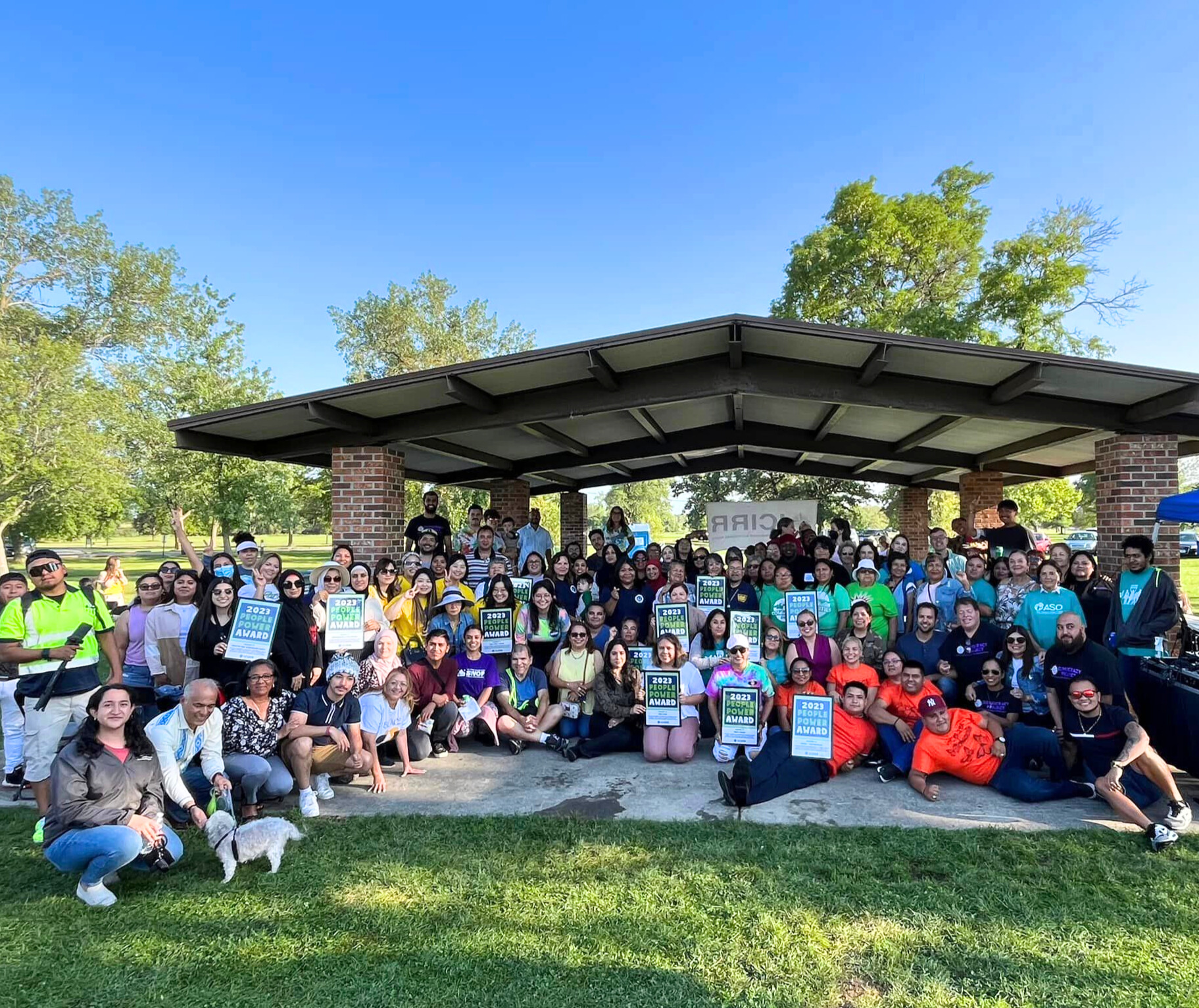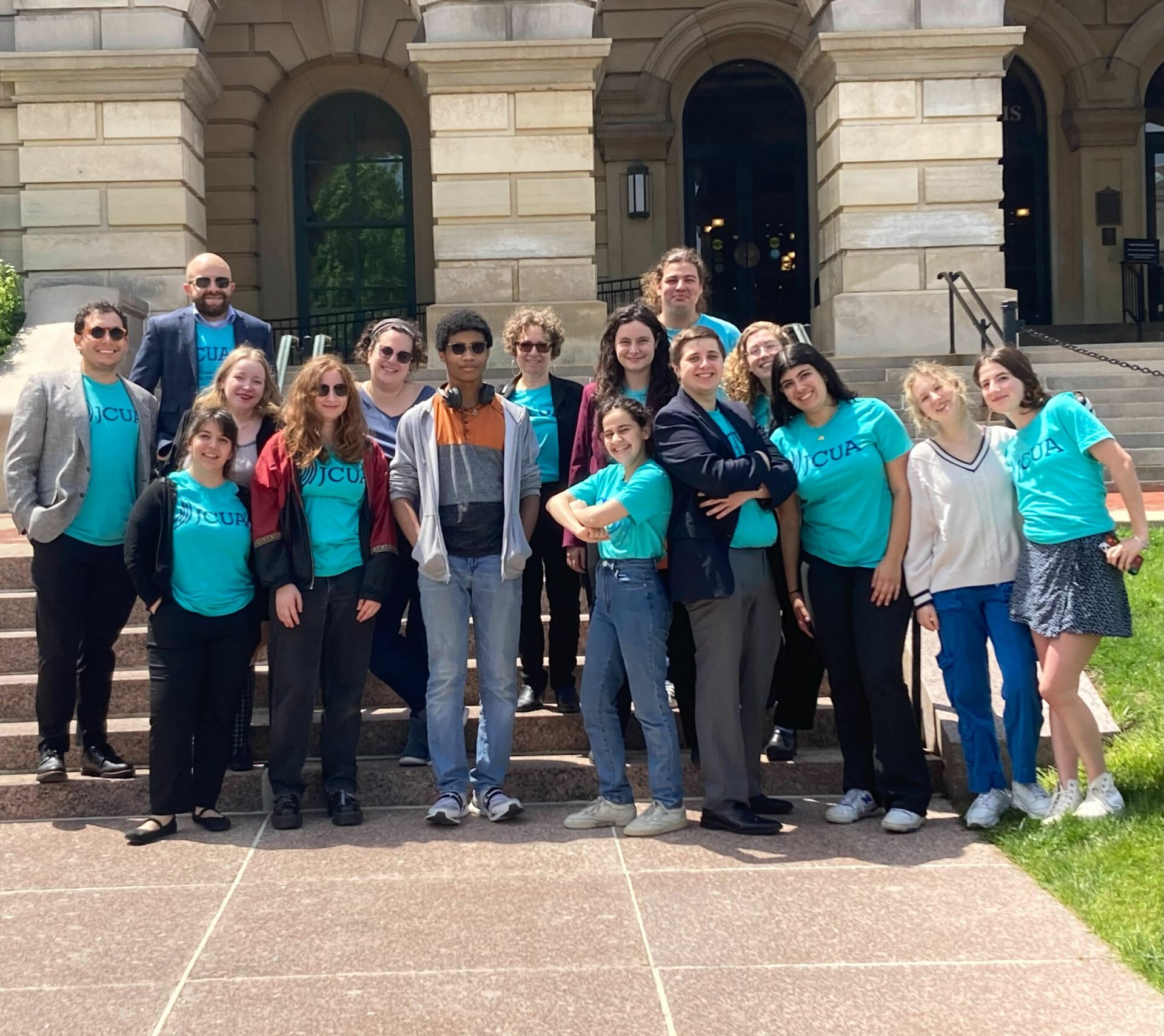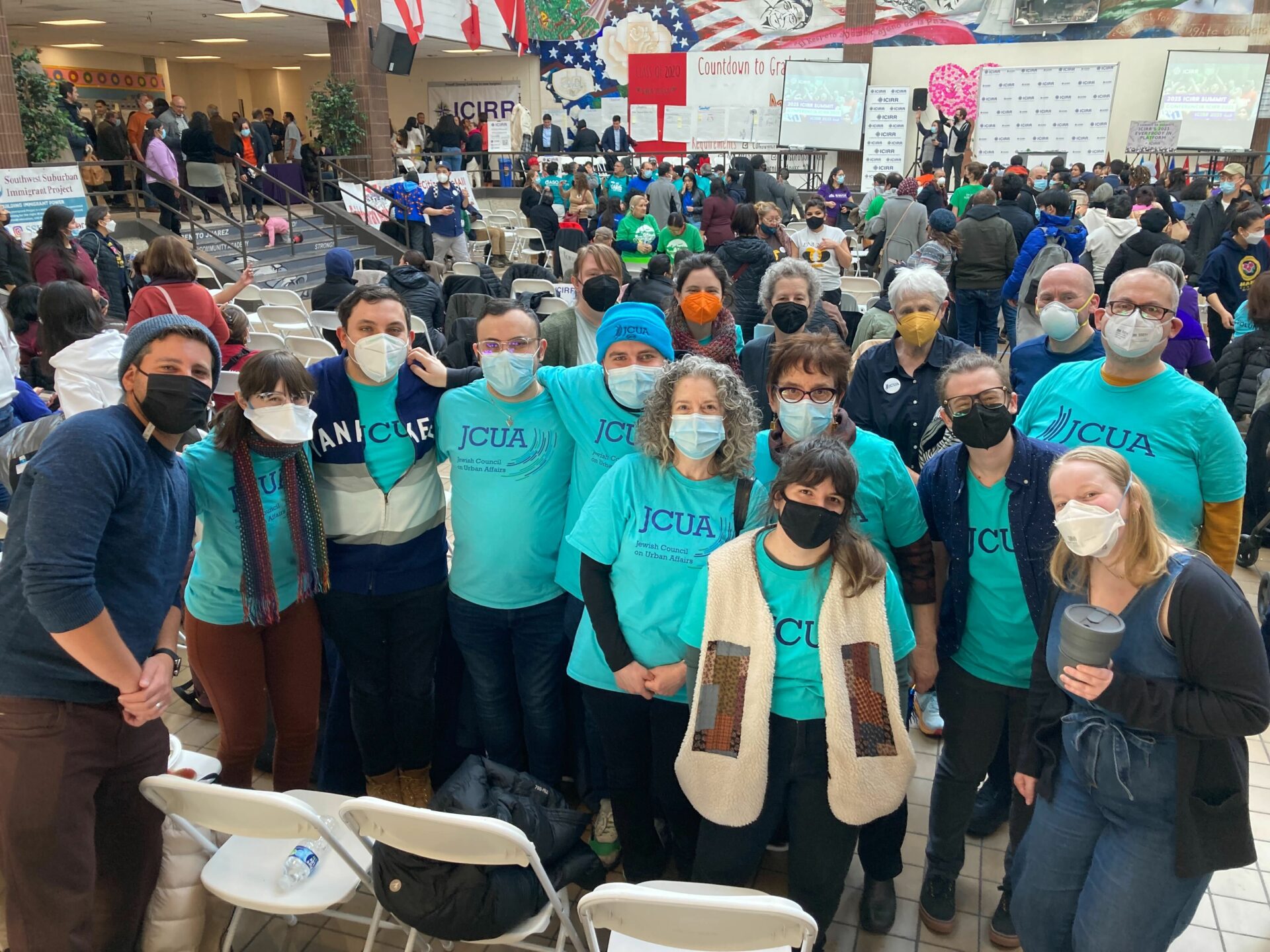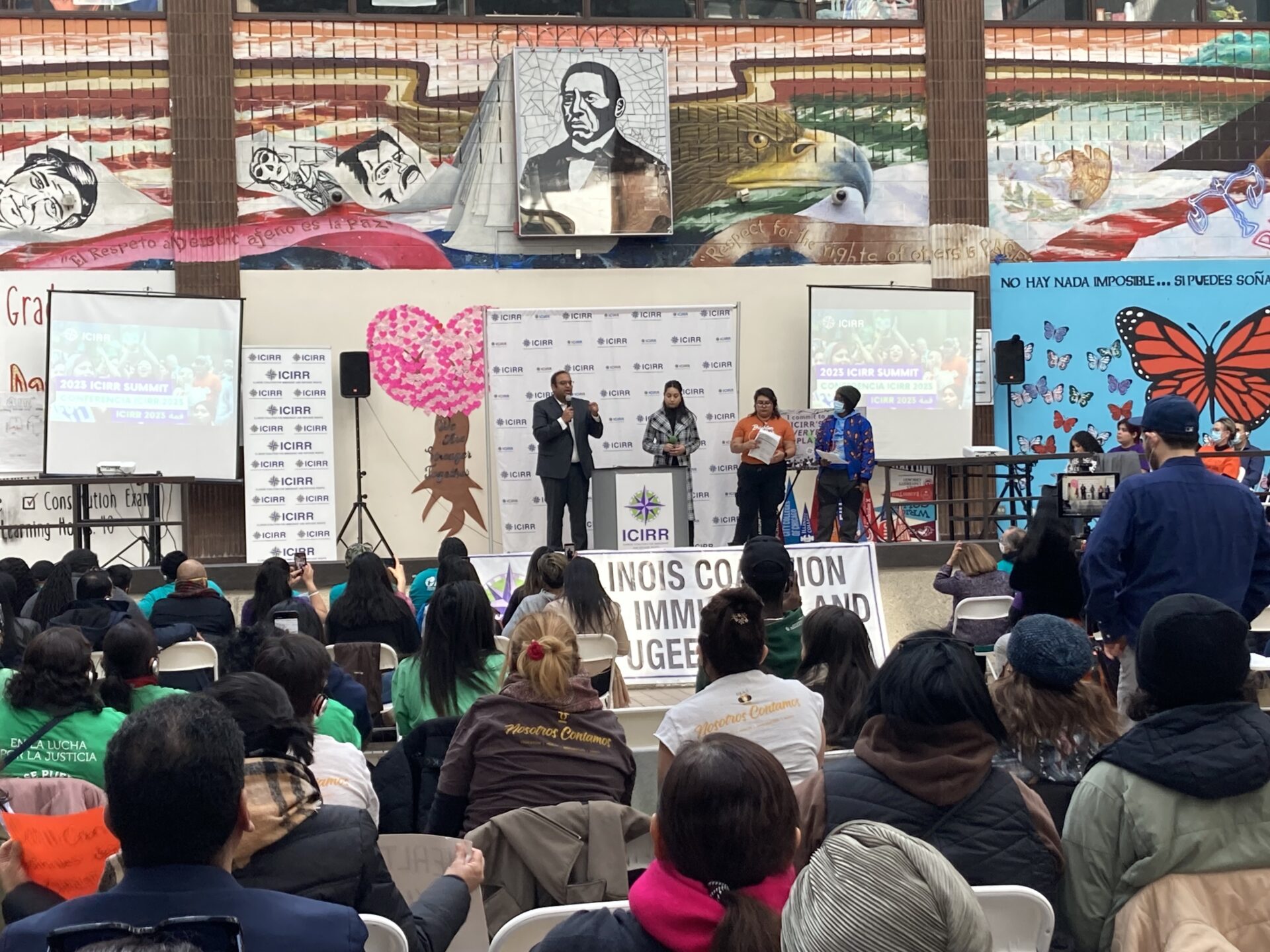A monumental victory for immigrants in Chicago
After five years of organizing, the Welcoming City Ordinance amendments have passed through the Chicago City Council.
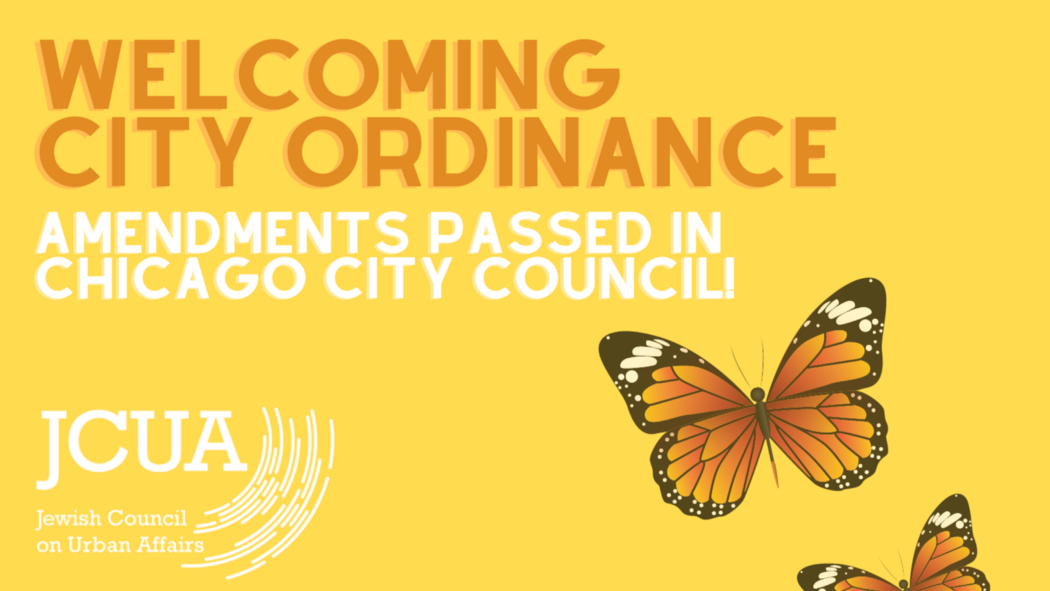
When JCUA joined the Chicago Immigration Working Group (CIWG) in the wake of the 2016 election, the urgency of protecting immigrant communities was clear. We had just elected a president who was hell bent on deporting as many people as possible, as quickly as possible, with as little oversight or reasoning as possible. It felt like our communities in Chicago were totally exposed.
Chicago had led the way in protecting immigrant residents when Mayor Harold Washington first passed the Welcoming City Ordinance (WCO), which was later updated under Mayor Rahm Emanuel in 2012. These policies ensured that Chicago’s police would not act as surrogate federal immigration officers and would not collaborate and support Immigration and Customs Enforcement’s (ICE) work and operations in Chicago.
But the reality was that four whole segments of Chicago’s residents were excluded from the protections of the ordinance and were therefore at risk of detention by police and deportation by ICE at any time. While Chicago’s elected officials were touting their status as a “sanctuary city” to the rest of the country and denouncing Trump publicly, immigrant families and communities were living with the constant threat of deportation still looming over their heads.
JCUA’s Immigration Justice Committee got involved in the campaign in 2017 and quickly learned there were many political calculations at play. Mayor Emanuel’s administration had been delaying the carve out removal for years at that point, stonewalling any attempt at introducing amendments into City Council, let alone passing them. The walls only got higher when the City of Chicago filed a lawsuit against the federal government challenging their decision to cut certain federal funding to Chicago because of our Welcoming City Ordinance policies. Any changes that were made to the WCO during the lawsuit, specifically to the carve outs provisions, would have impacted the lawsuit and could have impacted similar standoffs and cases in states across the country.
The CIWG and the Mayor’s office remained at this crossroads for the remainder of the Emanuel administration and through the beginning of Mayor Lori Lightfoot’s administration. Even though she campaigned on removing the carve outs from Chicago’s WCO, her first 100 days ticked by, and then many more months following that, with no action.
Aldermen Carlos Ramirez-Rosa, Mike Rodriguez, and Rosanna Rodriguez-Sanchez worked hard to organize within City Hall, with the mayor’s office, and with their colleagues to bring these amendments forward and support the work of the CIWG, but there continued to be no movement. Throughout this time, JCUA members along with our partners in the CIWG had been meeting with aldermen about the carve outs, calling into City Council offices, holding rallies and press conferences, sending emails, and doing presentations in our congregations and communities. We were doing what we could to let people know: these carve outs are dangerous, fear-inducing, and harmful to our neighbors and communities, and they must go. Now.
Finally in the days following the 2020 election and the likely election of President Joe Biden, Mayor Lightfoot’s office announced they were ready to remove the carve outs from the WCO. Under a new federal administration, the lawsuit was no longer a going concern. After a rocky attempt to use the WCO amendments as a budgetary bargaining chip, the WCO amendments were introduced separately into City Council in December of 2020 and were voted out of the Immigration and Refugee Rights Committee in their final form in January of 2021.
Yesterday, with the passage of these amendments, we are able to celebrate a major, hard fought victory. After five years of organizing, the Welcoming City Ordinance amendments passed through the Chicago City Council on January 27 — a huge victory for immigrants in Chicago. And we know the fight doesn’t end here. We know that Chicago is not a true sanctuary for so many of its residents — police brutality, racial profiling, economic disparities, housing instability, food insecurity. These injustices cannot stand while we say we are a sanctuary for all. So we keep organizing, we keep fighting, and we hope, we keep winning.

